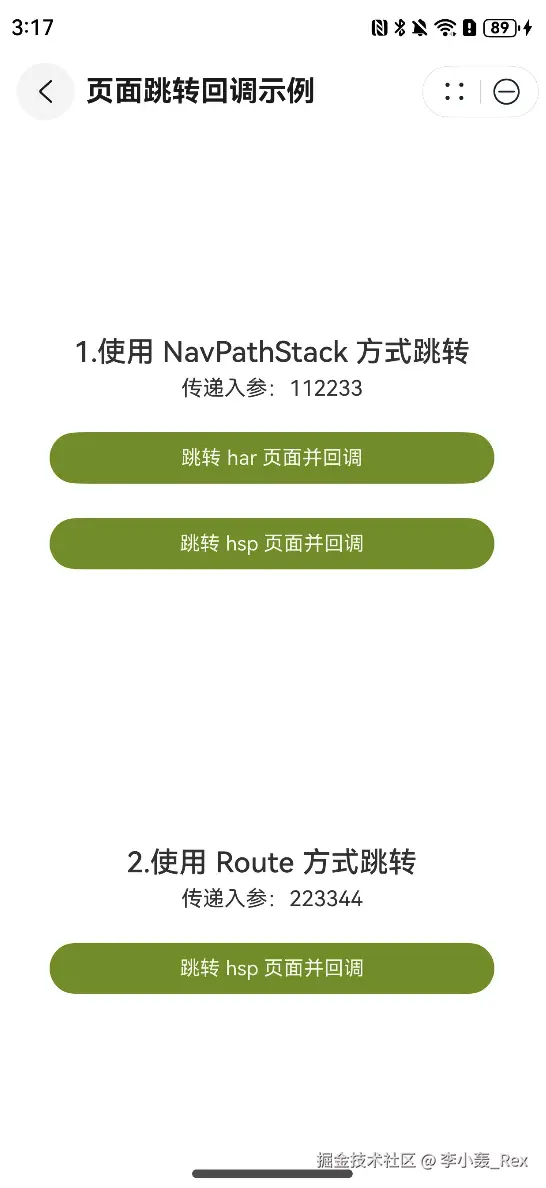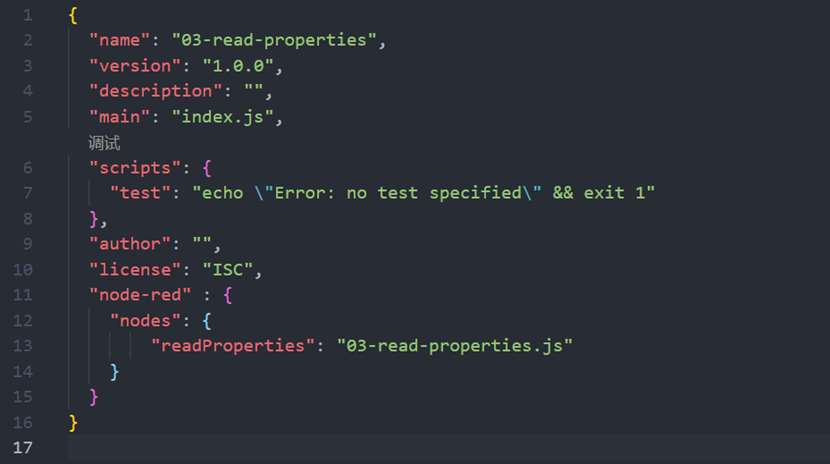LightRAG出自2024年10月的论文《LIGHTRAG: SIMPLE AND FASTRETRIEVAL-AUGMENTED GENERATION》(github),也是使用图结构来索引和搜索相关文本。
LightRAG作者认为已有的RAG系统有如下两个限制,导致难以回答类似"How does the rise of electric vehicles influence urban air quality and public transportation infrastructure?"的问题。
- 仅使用扁平数据表征(flat data representation),这限制了它们基于实体之间的复杂关系理解和检索信息的能力。
- 这些系统通常缺乏维持各种实体及其相互关系一致性所需的上下文意识,导致生成的回复可能无法完全满足用户查询的需求。
为了解决上述问题,LightRAG的解决办法是在现有RAG系统中引入图结构,其流程示意如论文图1。

索引
先来看一下LightRAG的数据索引步骤:
- 将一个文档分块(chunk),并将chunk存入到一个KV存储库中(key是由前缀和chunk文本hash之后的id组成,value是chunk的文本和token长度等内容)。
- 用LLM对每一个文本chunk提取实体和关系。(所有prompt在github的prompt.py文件)。实体由实体名称唯一标识(属性有实体名称、实体类型、实体描述、源chunk_id),关系由会由排序后的(首实体名称、尾实体名称)元祖来唯一标识,除了描述外,还包括多个关键词(属性有头实体名称、尾实体名称、关键词、描述、权重、源chunk_id)。
## 第一次对chunk提取实体和关系的prompt
PROMPTS["entity_extraction"] = """-Goal-
Given a text document that is potentially relevant to this activity and a list of entity types, identify all entities of those types from the text and all relationships among the identified entities.
-Steps-
1. Identify all entities. For each identified entity, extract the following information:
- entity_name: Name of the entity, use same language as input text. If English, capitalized the name.
- entity_type: One of the following types: [{entity_types}]
- entity_description: Comprehensive description of the entity's attributes and activities
Format each entity as ("entity"{tuple_delimiter}<entity_name>{tuple_delimiter}<entity_type>{tuple_delimiter}<entity_description>
2. From the entities identified in step 1, identify all pairs of (source_entity, target_entity) that are *clearly related* to each other.
For each pair of related entities, extract the following information:
- source_entity: name of the source entity, as identified in step 1
- target_entity: name of the target entity, as identified in step 1
- relationship_description: explanation as to why you think the source entity and the target entity are related to each other
- relationship_strength: a numeric score indicating strength of the relationship between the source entity and target entity
- relationship_keywords: one or more high-level key words that summarize the overarching nature of the relationship, focusing on concepts or themes rather than specific details
Format each relationship as ("relationship"{tuple_delimiter}<source_entity>{tuple_delimiter}<target_entity>{tuple_delimiter}<relationship_description>{tuple_delimiter}<relationship_keywords>{tuple_delimiter}<relationship_strength>)
3. Identify high-level key words that summarize the main concepts, themes, or topics of the entire text. These should capture the overarching ideas present in the document.
Format the content-level key words as ("content_keywords"{tuple_delimiter}<high_level_keywords>)
4. Return output in English as a single list of all the entities and relationships identified in steps 1 and 2. Use **{record_delimiter}** as the list delimiter.
5. When finished, output {completion_delimiter}
######################
-Examples-
######################
Example 1:
Entity_types: [person, technology, mission, organization, location]
Text:
while Alex clenched his jaw, the buzz of frustration dull against the backdrop of Taylor's authoritarian certainty. It was this competitive undercurrent that kept him alert, the sense that his and Jordan's shared commitment to discovery was an unspoken rebellion against Cruz's narrowing vision of control and order.
Then Taylor did something unexpected. They paused beside Jordan and, for a moment, observed the device with something akin to reverence. “If this tech can be understood..." Taylor said, their voice quieter, "It could change the game for us. For all of us.”
The underlying dismissal earlier seemed to falter, replaced by a glimpse of reluctant respect for the gravity of what lay in their hands. Jordan looked up, and for a fleeting heartbeat, their eyes locked with Taylor's, a wordless clash of wills softening into an uneasy truce.
It was a small transformation, barely perceptible, but one that Alex noted with an inward nod. They had all been brought here by different paths
################
Output:
("entity"{tuple_delimiter}"Alex"{tuple_delimiter}"person"{tuple_delimiter}"Alex is a character who experiences frustration and is observant of the dynamics among other characters."){record_delimiter}
("entity"{tuple_delimiter}"Taylor"{tuple_delimiter}"person"{tuple_delimiter}"Taylor is portrayed with authoritarian certainty and shows a moment of reverence towards a device, indicating a change in perspective."){record_delimiter}
("entity"{tuple_delimiter}"Jordan"{tuple_delimiter}"person"{tuple_delimiter}"Jordan shares a commitment to discovery and has a significant interaction with Taylor regarding a device."){record_delimiter}
("entity"{tuple_delimiter}"Cruz"{tuple_delimiter}"person"{tuple_delimiter}"Cruz is associated with a vision of control and order, influencing the dynamics among other characters."){record_delimiter}
("entity"{tuple_delimiter}"The Device"{tuple_delimiter}"technology"{tuple_delimiter}"The Device is central to the story, with potential game-changing implications, and is revered by Taylor."){record_delimiter}
("relationship"{tuple_delimiter}"Alex"{tuple_delimiter}"Taylor"{tuple_delimiter}"Alex is affected by Taylor's authoritarian certainty and observes changes in Taylor's attitude towards the device."{tuple_delimiter}"power dynamics, perspective shift"{tuple_delimiter}7){record_delimiter}
("relationship"{tuple_delimiter}"Alex"{tuple_delimiter}"Jordan"{tuple_delimiter}"Alex and Jordan share a commitment to discovery, which contrasts with Cruz's vision."{tuple_delimiter}"shared goals, rebellion"{tuple_delimiter}6){record_delimiter}
("relationship"{tuple_delimiter}"Taylor"{tuple_delimiter}"Jordan"{tuple_delimiter}"Taylor and Jordan interact directly regarding the device, leading to a moment of mutual respect and an uneasy truce."{tuple_delimiter}"conflict resolution, mutual respect"{tuple_delimiter}8){record_delimiter}
("relationship"{tuple_delimiter}"Jordan"{tuple_delimiter}"Cruz"{tuple_delimiter}"Jordan's commitment to discovery is in rebellion against Cruz's vision of control and order."{tuple_delimiter}"ideological conflict, rebellion"{tuple_delimiter}5){record_delimiter}
("relationship"{tuple_delimiter}"Taylor"{tuple_delimiter}"The Device"{tuple_delimiter}"Taylor shows reverence towards the device, indicating its importance and potential impact."{tuple_delimiter}"reverence, technological significance"{tuple_delimiter}9){record_delimiter}
("content_keywords"{tuple_delimiter}"power dynamics, ideological conflict, discovery, rebellion"){completion_delimiter}
#############################
Example 2:
Entity_types: [person, technology, mission, organization, location]
Text:
They were no longer mere operatives; they had become guardians of a threshold, keepers of a message from a realm beyond stars and stripes. This elevation in their mission could not be shackled by regulations and established protocols—it demanded a new perspective, a new resolve.
Tension threaded through the dialogue of beeps and static as communications with Washington buzzed in the background. The team stood, a portentous air enveloping them. It was clear that the decisions they made in the ensuing hours could redefine humanity's place in the cosmos or condemn them to ignorance and potential peril.
Their connection to the stars solidified, the group moved to address the crystallizing warning, shifting from passive recipients to active participants. Mercer's latter instincts gained precedence— the team's mandate had evolved, no longer solely to observe and report but to interact and prepare. A metamorphosis had begun, and Operation: Dulce hummed with the newfound frequency of their daring, a tone set not by the earthly
#############
Output:
("entity"{tuple_delimiter}"Washington"{tuple_delimiter}"location"{tuple_delimiter}"Washington is a location where communications are being received, indicating its importance in the decision-making process."){record_delimiter}
("entity"{tuple_delimiter}"Operation: Dulce"{tuple_delimiter}"mission"{tuple_delimiter}"Operation: Dulce is described as a mission that has evolved to interact and prepare, indicating a significant shift in objectives and activities."){record_delimiter}
("entity"{tuple_delimiter}"The team"{tuple_delimiter}"organization"{tuple_delimiter}"The team is portrayed as a group of individuals who have transitioned from passive observers to active participants in a mission, showing a dynamic change in their role."){record_delimiter}
("relationship"{tuple_delimiter}"The team"{tuple_delimiter}"Washington"{tuple_delimiter}"The team receives communications from Washington, which influences their decision-making process."{tuple_delimiter}"decision-making, external influence"{tuple_delimiter}7){record_delimiter}
("relationship"{tuple_delimiter}"The team"{tuple_delimiter}"Operation: Dulce"{tuple_delimiter}"The team is directly involved in Operation: Dulce, executing its evolved objectives and activities."{tuple_delimiter}"mission evolution, active participation"{tuple_delimiter}9){completion_delimiter}
("content_keywords"{tuple_delimiter}"mission evolution, decision-making, active participation, cosmic significance"){completion_delimiter}
#############################
Example 3:
Entity_types: [person, role, technology, organization, event, location, concept]
Text:
their voice slicing through the buzz of activity. "Control may be an illusion when facing an intelligence that literally writes its own rules," they stated stoically, casting a watchful eye over the flurry of data.
"It's like it's learning to communicate," offered Sam Rivera from a nearby interface, their youthful energy boding a mix of awe and anxiety. "This gives talking to strangers' a whole new meaning."
Alex surveyed his team—each face a study in concentration, determination, and not a small measure of trepidation. "This might well be our first contact," he acknowledged, "And we need to be ready for whatever answers back."
Together, they stood on the edge of the unknown, forging humanity's response to a message from the heavens. The ensuing silence was palpable—a collective introspection about their role in this grand cosmic play, one that could rewrite human history.
The encrypted dialogue continued to unfold, its intricate patterns showing an almost uncanny anticipation
#############
Output:
("entity"{tuple_delimiter}"Sam Rivera"{tuple_delimiter}"person"{tuple_delimiter}"Sam Rivera is a member of a team working on communicating with an unknown intelligence, showing a mix of awe and anxiety."){record_delimiter}
("entity"{tuple_delimiter}"Alex"{tuple_delimiter}"person"{tuple_delimiter}"Alex is the leader of a team attempting first contact with an unknown intelligence, acknowledging the significance of their task."){record_delimiter}
("entity"{tuple_delimiter}"Control"{tuple_delimiter}"concept"{tuple_delimiter}"Control refers to the ability to manage or govern, which is challenged by an intelligence that writes its own rules."){record_delimiter}
("entity"{tuple_delimiter}"Intelligence"{tuple_delimiter}"concept"{tuple_delimiter}"Intelligence here refers to an unknown entity capable of writing its own rules and learning to communicate."){record_delimiter}
("entity"{tuple_delimiter}"First Contact"{tuple_delimiter}"event"{tuple_delimiter}"First Contact is the potential initial communication between humanity and an unknown intelligence."){record_delimiter}
("entity"{tuple_delimiter}"Humanity's Response"{tuple_delimiter}"event"{tuple_delimiter}"Humanity's Response is the collective action taken by Alex's team in response to a message from an unknown intelligence."){record_delimiter}
("relationship"{tuple_delimiter}"Sam Rivera"{tuple_delimiter}"Intelligence"{tuple_delimiter}"Sam Rivera is directly involved in the process of learning to communicate with the unknown intelligence."{tuple_delimiter}"communication, learning process"{tuple_delimiter}9){record_delimiter}
("relationship"{tuple_delimiter}"Alex"{tuple_delimiter}"First Contact"{tuple_delimiter}"Alex leads the team that might be making the First Contact with the unknown intelligence."{tuple_delimiter}"leadership, exploration"{tuple_delimiter}10){record_delimiter}
("relationship"{tuple_delimiter}"Alex"{tuple_delimiter}"Humanity's Response"{tuple_delimiter}"Alex and his team are the key figures in Humanity's Response to the unknown intelligence."{tuple_delimiter}"collective action, cosmic significance"{tuple_delimiter}8){record_delimiter}
("relationship"{tuple_delimiter}"Control"{tuple_delimiter}"Intelligence"{tuple_delimiter}"The concept of Control is challenged by the Intelligence that writes its own rules."{tuple_delimiter}"power dynamics, autonomy"{tuple_delimiter}7){record_delimiter}
("content_keywords"{tuple_delimiter}"first contact, control, communication, cosmic significance"){completion_delimiter}
#############################
-Real Data-
######################
Entity_types: {entity_types}
Text: {input_text}
######################
Output:
"""
### 防止第一次提取的实体不全,让LLM继续提取的prompt
PROMPTS[
"entiti_continue_extraction"
] = """MANY entities were missed in the last extraction. Add them below using the same format:
"""
- 将提取的多个相同名称的实体或关系用LLM来总结其描述(只有当描述长度超过配置长度时,才会触发LLM总结)
PROMPTS[
"summarize_entity_descriptions"
] = """You are a helpful assistant responsible for generating a comprehensive summary of the data provided below.
Given one or two entities, and a list of descriptions, all related to the same entity or group of entities.
Please concatenate all of these into a single, comprehensive description. Make sure to include information collected from all the descriptions.
If the provided descriptions are contradictory, please resolve the contradictions and provide a single, coherent summary.
Make sure it is written in third person, and include the entity names so we the have full context.
#######
-Data-
Entities: {entity_name}
Description List: {description_list}
#######
Output:
"""
-
将实体和关系的数据存储为图,同时将实体和关系的数据分别存入独立的向量数据库(实体的名称作为meta_fields,实体的名称和描述拼接成字符串作为向量编码文本;关系的头尾实体名称作为meta_fileds,关系的关键词、头尾实体名称、描述拼接成字符串作为向量编码文本)。
-
增量更新机制:每次有新数据进来时,会检查数据在已有的KV存储或者图存储中是否已存在,再进行更新合并或新增。
查询
LightRAG将用户查询分为两大类:
- 具体查询(Specific Queries):涉及到图中具体实体的问题,比如”Who wrote ‘Pride and Prejudice’?“。
- 抽象查询(Abstract Queries):更概念化,涉及到不直接与具体实体关联的更大的话题、主旨等,比如"How does artificial intelligence influence modern education?"。
所以为了能够处理不同类型的用户查询,LightRAG也有两种检索策略:Low-Level Retrieval(Local)和High-Level Retrieval(Global),用户选择其中一种或者同时使用这两种检索策略。下面介绍两种检索策略的详细步骤。
Low-Level Retrieval:
- 先让LLM对给定的query q,提取local关键字(提取global关键词的prompt是同一个)。
PROMPTS["keywords_extraction"] = """---Role---
You are a helpful assistant tasked with identifying both high-level and low-level keywords in the user's query.
---Goal---
Given the query, list both high-level and low-level keywords. High-level keywords focus on overarching concepts or themes, while low-level keywords focus on specific entities, details, or concrete terms.
---Instructions---
- Output the keywords in JSON format.
- The JSON should have two keys:
- "high_level_keywords" for overarching concepts or themes.
- "low_level_keywords" for specific entities or details.
######################
-Examples-
######################
Example 1:
Query: "How does international trade influence global economic stability?"
################
Output:
{{
"high_level_keywords": ["International trade", "Global economic stability", "Economic impact"],
"low_level_keywords": ["Trade agreements", "Tariffs", "Currency exchange", "Imports", "Exports"]
}}
#############################
Example 2:
Query: "What are the environmental consequences of deforestation on biodiversity?"
################
Output:
{{
"high_level_keywords": ["Environmental consequences", "Deforestation", "Biodiversity loss"],
"low_level_keywords": ["Species extinction", "Habitat destruction", "Carbon emissions", "Rainforest", "Ecosystem"]
}}
#############################
Example 3:
Query: "What is the role of education in reducing poverty?"
################
Output:
{{
"high_level_keywords": ["Education", "Poverty reduction", "Socioeconomic development"],
"low_level_keywords": ["School access", "Literacy rates", "Job training", "Income inequality"]
}}
#############################
-Real Data-
######################
Query: {query}
######################
Output:
"""
- 如果没有关键词则返回无法回答问题,否则将LLM提取的关键字用逗号拼接起来作为新的query。
- 用上一步生成的新query来检索存储实体的向量数据库,召回top-k个实体。
- 根据top-k实体获取上下文,上下文分为三部分,用带head的csv格式表示: 1. 实体在图谱中存储的详情(名称、类型描述、度); 2. 实体相关的源chunk文本,这些chunk数据根据实体的top-k位置正序以及与实体的一度邻居实体共享这个chunk的次数倒序排序(
all_text_units = sorted(all_text_units, key=lambda x: (x["order"], -x["relation_counts"]))); 3. 实体相关的边详情(头实体名称、尾实体名称、关键词、描述、权重、度),这些边根据度和权重倒序排序。 - 如果前一步没有上下文则返回无法回答问题,否则让LLM根据上下文来回答用户的问题。
PROMPTS["rag_response"] = """---Role---
You are a helpful assistant responding to questions about data in the tables provided.
---Goal---
Generate a response of the target length and format that responds to the user's question, summarizing all information in the input data tables appropriate for the response length and format, and incorporating any relevant general knowledge.
If you don't know the answer, just say so. Do not make anything up.
Do not include information where the supporting evidence for it is not provided.
---Target response length and format---
{response_type}
---Data tables---
{context_data}
Add sections and commentary to the response as appropriate for the length and format. Style the response in markdown.
"""
High-Level Retrieval:
- 让LLM对给定的query q,提取global关键字(与前面提取local关键词的prompt是同一个)。
- 如果没有关键词则返回无法回答问题,否则将LLM提取的关键字用逗号拼接起来作为新的query。
- 用上一步生成的新query来检索存储关系的向量数据库,召回top-k个关系。
- 根据top-k关系获取上下文,上下文分为三部分,用带head的csv格式表示: 1. 关系对应的首尾实体在图谱中存储的详情(名称、类型描述、度); 2. 关系相关的源chunk文本,这些chunk数据根据关系的top-k位置正序; 3. 关系详情(头实体名称、尾实体名称、关键词、描述、权重、度),这些边根据度和权重倒序排序(感觉这里排序直接就按照向量召回的top-k排序就可以了,不需要与low-level rerieval保持一致)。
- 如果前一步没有上下文则返回无法回答问题,否则让LLM根据上下文来回答用户的问题(prompt与low-level rerieval一致)。
总结
LightRAG像是GraphRAG的简化版。它利用图结构来存储和检索文本数据,对于实体和关系不仅使用图存储,同时使用向量存储。检索时先用向量进行实体或关系召回,再借助图结构找到对应的chunk文本。


![[VUE]框架网页开发02-如何打包Vue.js框架网页并在服务器中通过Tomcat启动](https://i-blog.csdnimg.cn/direct/dcf2547ffcef46f9a41b02ef768906fb.png)
















